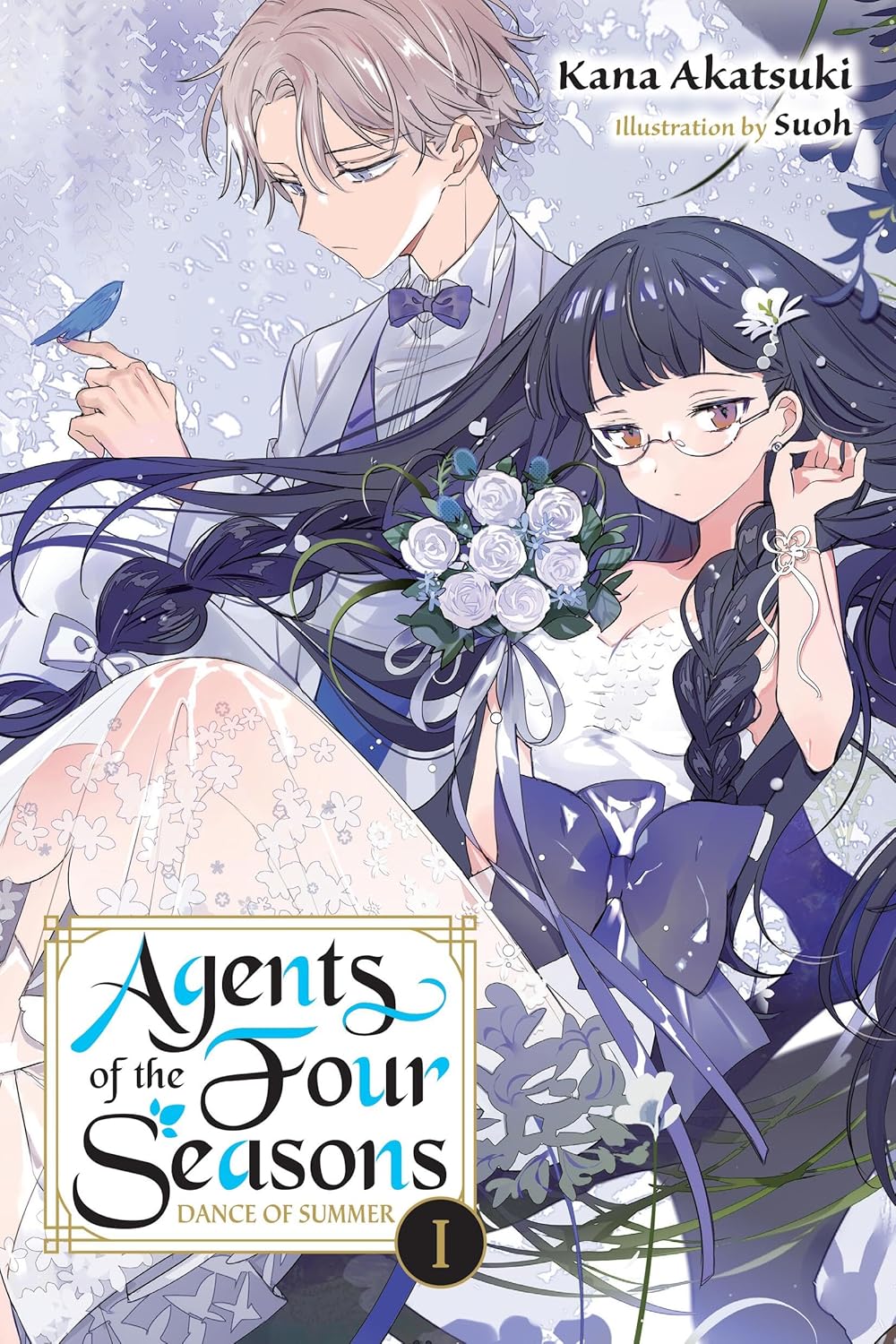By Kana Akatsuki and Suoh. Released in Japan as “Shunka Shūtō Daikōsha” by Dengeki Bunko. Released in North America by Yen On. Translated by Sergio Avila.
Boy, the world that this takes place in really sucks, doesn’t it? This is an alternate Japan where the world relies on people with special powers chosen by the Gods (supposedly) to bring about the seasons, and in this book we also find out that there are archers whose arrows bring about day and night every day. When the Agents can’t or don’t do their duty, the area suffers. If the archers miss a day or miss a shot, the area really suffers. Those responsible are chosen right after the previous one dies, get no choice in the matter, and are, as we see in this volume, blamed for almost everything wrong with the entire country. Oh, and because this book loves to pile on, almost all of them have some sort of tragedy and/or abuse in their life, or are currently having it. The premise of this series is being able to overcome that and live happily, but man, it does occasionally make for depressing reading.
After the events of the last two books, everything is… not back to normal. For one thing, there are now TWO agents of summer, something that makes the conservatives in charge of the town of summer furious. There are, in fact, rumors going around that every single bad thing that has happened recently has been because God is angry at the current agents, and they should all be replaced for the greater good. Unfortunately, “replaced” means “murdered”. What’s worse, Ruri and Ayame both have their engagements broken, which completely traumatizes Ayame, who was secretly in love with her fiance (who loved her back, but both are so repressed neither one noticed). Meanwhile, in case you thought we wouldn’t be seeing Hinagiku in this book, no worries. Unfortunately, she too is dealing with the rumors, which state that the two years she spent recovering from trauma are why all this happened at all. Scapegoats for all!
This is another two-parter, and focuses far more heavily on the twin sisters Ayame and Ruri. We get flashbacks to their childhoods, and see exactly how being chosen as an Agent can be completely traumatizing, and can also damage a family – the twins’ parents are on their side, but there’s still a lot of friction, mostly as Ruri is acting like a 10-year-old who is being torn away from her twin and being forced to be an agent of God. Ruri does not at all fit the bill for the ideal agent… but neither does Ayame, who is so stressed and guilty over all of this that at one point she attempts to run away from home. In the present, the scene with the Town of Summer yelling at Ayame for causing all this by not letting Ruri die, and telling Ruri “the dead don’t get to speak here”, is jaw-droppingly horrifying, especially as it hits on Ruri’s own trauma specifically (she uses asterisks for the word “died” at the start of the volume, a common Japanese trope for a person avoiding thinking of trauma). By the end of the volume they’re being manipulated by unseen forces, but frankly, if it makes them more proactive, I’m OK with it.
All this and I didn’t even mention their actual fiances (another abuse survivor, and a man who we know little about but seems to be “likeable sociopath”). The next volume will be highly anticipated. Though also dreaded a little, perhaps.



